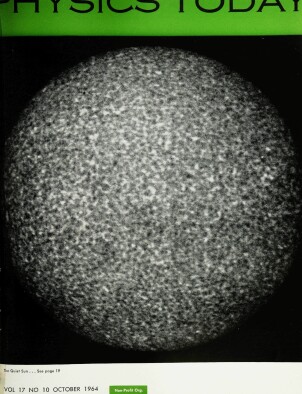Teaching physics in the elementary grades
DOI: 10.1063/1.3051172
During the last ten years, physicists have become increasingly concerned with various aspects of pre‐collegiate education. Of greatest interest has been the high‐school physics course, which presents a student with his first opportunity to concentrate on coming to grips with our discipline. It has become clear, however, that large elements of the school population never enroll in high‐school physics, and that even many of those who do cannot really take advantage of all the opportunities afforded by a modern course like that prepared by the Physical Science Study Committee. Accordingly, there is a growing involvement of physicists with attempts at educational innovation in the elementary and junior high schools.
This article is only available in PDF format
More about the authors
Robert Karplus, University of California, Berkeley.




